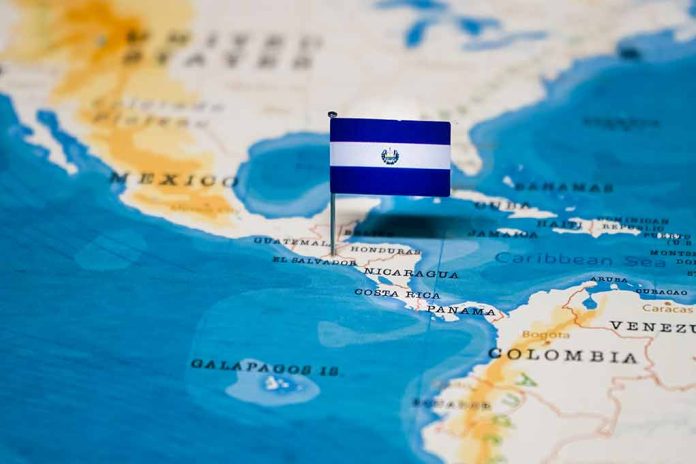
El Salvador’s agreement to house U.S. deportees and criminals has led to ethical and legal scrutiny on an international scale.
Key Takeaways
- El Salvador proposes receiving U.S. criminals for financial aid.
- Critics warn about human rights violations and legal challenges.
- The Trump administration supports the agreement, viewing it as a key migration strategy.
- Human rights organizations condemn El Salvador’s prison conditions.
El Salvador’s Controversial Offer
El Salvador’s President Nayib Bukele put forward a proposal to house U.S. criminals and deportees from various nationalities in the nation’s prison system. This unique agreement was made during discussions with U.S. Secretary of State Marco Rubio. The offer is intended to stabilize El Salvador’s prison infrastructure financially through compensation from the United States.
Bukele’s proposal includes using El Salvador’s new mega-prison, the Center for Terrorism Confinement (CECOT), which can house approximately 40,000 inmates. The administration plans to accommodate American convicts alongside Latin American gang members, including MS-13 and Tren de Aragua affiliates.
Ethical and Legal Concerns
This agreement raises significant ethical concerns, particularly regarding human rights. Critics are wary of El Salvador’s historically inadequate prison conditions, pointing out issues of overcrowding and maltreatment within these facilities. Additionally, the legality of deporting U.S. nationals, especially those who are incarcerated, to another country is highly contested and could lead to potential legal disputes.
“The US is absolutely prohibited from deporting US citizens, whether they are incarcerated or not” – Leti Volpp
Human rights organizations have consistently criticized El Salvador for the brutality and insufficiency of its penal facilities. Concerns persist that individuals relocated under this agreement may face inhumane conditions or suffer violations of their fundamental human rights, risking further international backlash.
Political Implications and Reactions
The Trump administration views this agreement as aligning with its broader efforts to intensify immigration controls, perceiving El Salvador as a strategic ally in their bid to deport undocumented immigrants and convicted criminals. Described by Rubio as “unprecedented,” this agreement might signify a larger shift toward delegating immigration enforcement to allied nations.
While the administration applauds El Salvador’s willingness to receive deportees, human rights groups and advocacy organizations fiercely criticize the Americans’ decision to support such a policy, indicating potential democratic backsliding. However, Bukele’s initiative remains popular locally due to his success in lowering crime rates, amidst ongoing concerns about governance and civil liberties in El Salvador.
Sources
2. El Salvador offers to jail US convicts in ‘unprecedented’ proposal




